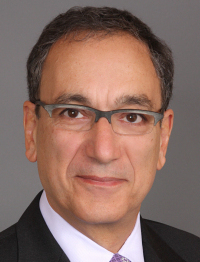 |
| Biogen Idec CEO George Scangos--FiercePharma File Photo |
The market for hemophilia drugs is about to suffer a tectonic shift. New, long-acting clotting factors are on their way, with Biogen Idec's ($BIIB) hemophilia B drug Alprolix first in line. The new treatments promise to prevent bleeding for up to two weeks, and that means today's injections will have to find a way to compete.
As Reuters reports, Biogen is eyeing a potential FDA approval in mid-2014, while Novo Nordisk ($NVO) expects to apply for the agency's OK next year on its hemophilia B drug, N9-GP. Baxter's Rixubis, given twice a week, won the FDA nod last June.
According to one hemophilia expert, Alprolix works three times as long as current clotting factors do, while Novo Nordisk's lasts 5 times as long. And Dr. Guy Young of Children's Hospital Los Angeles also told Reuters that he thinks most hemophilia B patients will end up on the longer-acting drugs. "There is no question that when these drugs get on the market there will be pretty massive and quick uptake," Young told the news service.
Meanwhile, Novo Nordisk got the agency's blessing in October for its shorter-acting NovoEight treatment for hemophilia A. Baxter expects to file for FDA approval on a hemophilia A treatment later this year. Biogen has a hemophilia A product as well--Eloctate--with a decision expected later this year.
All this could be bad news for companies that make today's shorter-acting treatments, including Baxter, which has long specialized in treating the disease, and Pfizer ($PFE), which sells BeneFix for hemophilia B and Xyntha for hemophilia A. As Reuters points out, if the new crop of meds is priced at around the same level as current treatments, then the older products will probably try to compete on price.
It's all up to the payers, Biogen CEO George Scangos said earlier this year: If they decide the new meds only beat the old on convenience, then the prices will be on par with the older products. If payers think the newer treatments work better, then they can hit the market at higher prices.
In any event, Morningstar believes the worldwide hemophilia market will growth to $11.4 billion by 2016. And Deutsche Bank figures Biogen's hemophilia products can account for $1.2 billion by 2017, Reuters notes.
- read the Reuters story
Special Report: Top 20 Orphan Drugs by 2018 - NovoSeven